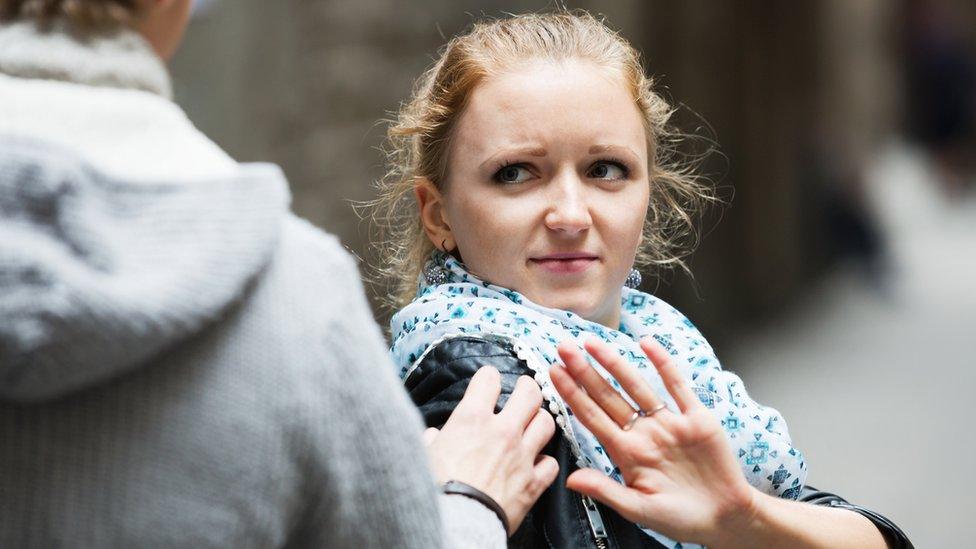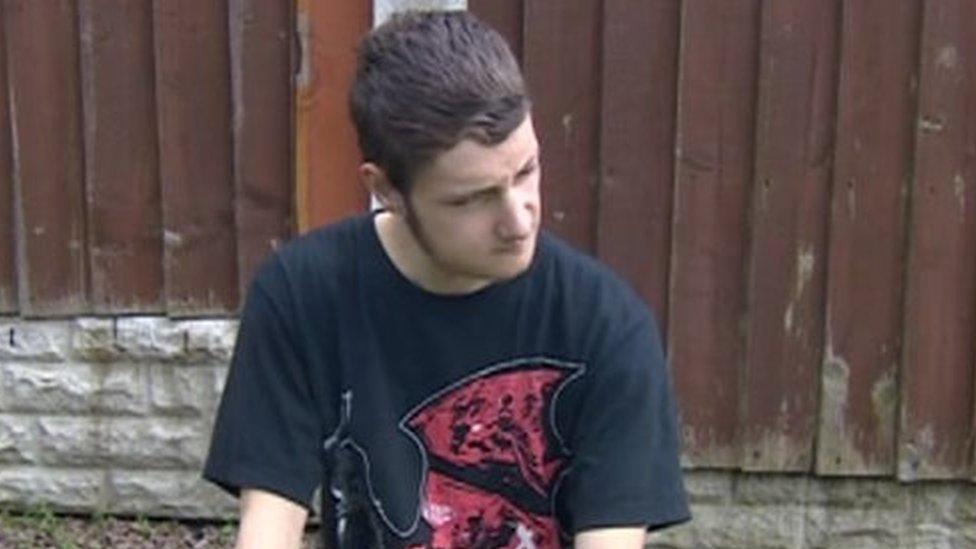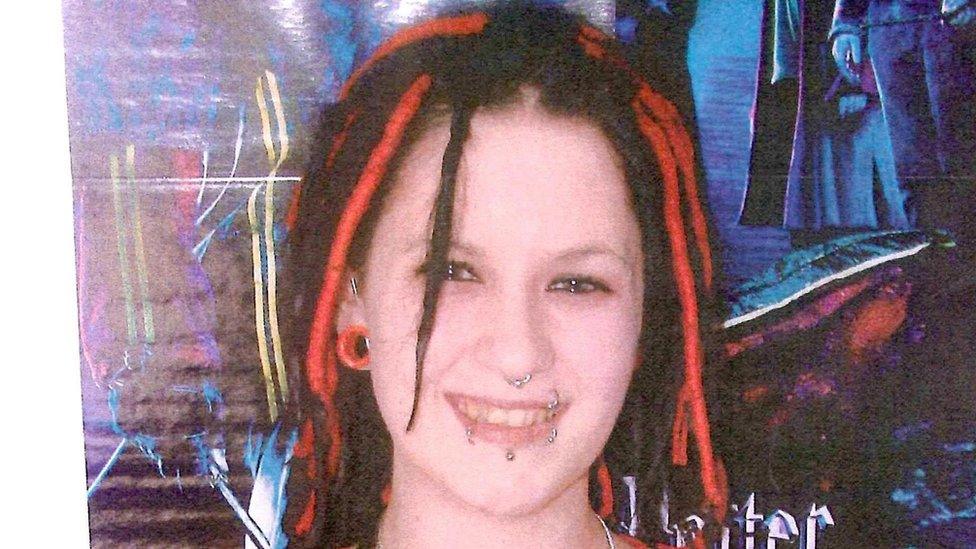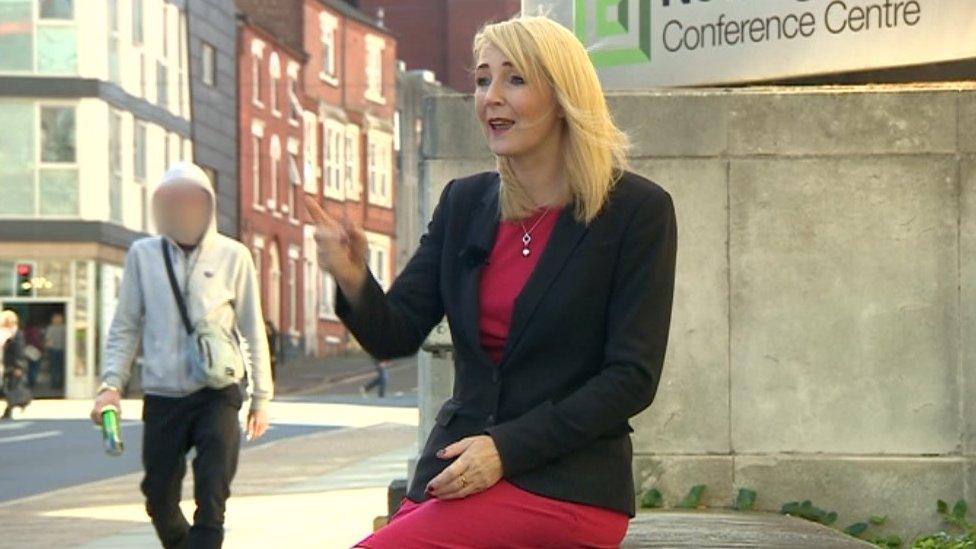Nottinghamshire Police records misogyny as a hate crime
- Published
While reporting on a conference about the harassment of women, BBC reporter Sarah Teale was harassed
Harassment of women is to be recorded as a hate crime in a bid to tackle sexist abuse.
Nottinghamshire Police said it would expand its categories to include misogynistic incidents.
It means abuse or harassment which might not be a crime can be reported to and investigated by the police, and support for the victim put in place.
Nottingham Women's Centre said it hopes it will help give more victims the courage to report incidents.
Chief Constable Sue Fish claimed it will make the county a safer place for women.

If a woman receives unwanted attention on the street, it can now be reported to Nottinghamshire Police as a hate crime
"What women face, often on a daily basis, is absolutely unacceptable and can be extremely distressing," she said.
"Nottinghamshire Police is committed to taking misogynistic hate crime seriously and encourages anyone who is affected by it to contact us without hesitation."
Work on the idea first started with the Nottinghamshire Safer for Women Conference last year, co-hosted by the police with the Nottingham Women's Centre.
BBC TV reporter Sarah Teale was harassed in the street while reporting on the conference.
'Violence and intimidation'
The force defines misogyny hate crime as: "Incidents against women that are motivated by an attitude of a man towards a woman and includes behaviour targeted towards a woman by men simply because they are a woman."
The classification now means people can report incidents which might not be considered to be a crime and the police will investigate.
Nottingham Women's Centre has been helping train call centre, force control staff and officers on the beat to recognise misogynistic hate crime and ways to tackle it.
These officers will also examine if and how a victim can be supported or if anything can be done to help prevent them being targeted again.
Domestic abuse will not be recorded as a misogyny hate crime because it has its own procedure, the force said.
Melanie Jeffs, centre manager at Nottingham Women's Centre, said: "We're pleased to see Nottinghamshire Police recognise the breadth of violence and intimidation that women experience on a daily basis in our communities."
She added: "Recording this as a hate crime will give us a detailed picture of how often, when and where it is happening. It has been very difficult to build that picture before but we will now get detailed data to analyse.
"Showing that the police take it seriously will also give people the confidence to come forward and report offences."

What is hate crime?
A crime that the victim or any other person perceives to be motivated by hostility or prejudice towards any aspect of a person's identity.
Police forces in England, Wales and Northern Ireland annually monitor five strands of hate crime:
Disability
Gender identity
Race, ethnicity or nationality
Religion, faith or belief
Sexual orientation
Forces can include their own definition of a hate crime with several recently adding sub cultures.

- Published29 May 2016

- Published25 November 2015

- Published26 September 2015
